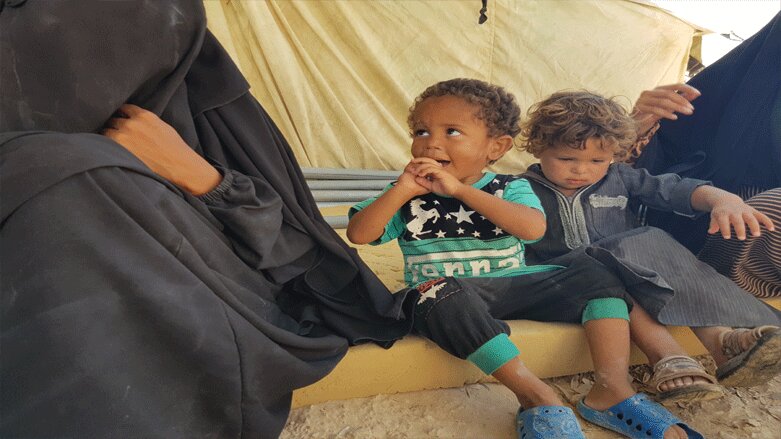Foreign governments failed to repatriate children from camps in Syria: Save the Children

ERBIL (Kurdistan 24) – Many of the world's wealthiest countries have failed to bring home most of their children stuck in two camps in northeast Syria, Save the Children said in a report on Thursday.
According to the report, "62 children, or approximately two every week, have died of different causes in Al Hol so far this year."
It also said, "73 people, including two children, have been murdered in Al Hol so far this year."
Furthermore, the report said only 40 percent of children in Al Hol receive an education, "with years of traumatic experiences taking a toll on their mental health."
"It is more urgent than ever that foreign governments with nationals in Al Hol and Roj – many of whom fled their homes to escape ISIS - take responsibility and bring children and their families home," the organization said.
It blamed EU member states, the United Kingdom, Canada, and Australia, for not having done enough to repatriate their citizens.
"For example, the UK has only repatriated four children with about 60 believed to remain there," the organization said.
"France has at least 320 children in the camps, but has only brought home 35."
However, it said that in recent months, countries including Germany, Finland and Belgium "completed the repatriation of a group of mothers and children from the camps, proving again that it is possible to save lives when there is political will."
On September 7, Sweden repatriated nine Swedish nationals, including three women and their six children.
Read More: Sweden repatriates ISIS-affiliated women in Syria, their children
The Kurdish-led Syrian Democratic Forces (SDF) and the civilian Autonomous Administration in northeast Syria have publicly called on foreign countries to repatriate their citizens.
Also, in March, the United Nations children's agency UNICEF called for the repatriation of all 22,000 foreign children from northeast Syria after at least three died in a fire in al-Hol.
Read More: UN agency calls for repatriation of 22,000 foreign children in northeast Syria
According to the Save the Children report, there are a total of 60,000 people living in the al-Hol and Roj camps, 40,000 of whom are children.
The majority of them are Syrian and Iraqi nationals. However, there are also women and children from approximately 60 other countries around the world.
Local authorities decided in October 2020 to expedite the departure of displaced Syrian families as part of a new reform program.
Recently on September 15, around a total of 324 people originally from Raqqa were planning to leave al-Hol camp, Northpress reported.
According to a report of USAID, 381 Iraqi refugees returned to Iraq from northeastern Syria's Al Hol refugee camp on May 25.
However, the report added that the group represents just 5 percent of the approximately 8,000 Iraqi refugees who have been sheltering at Al Hol camp since 2014–2015.
